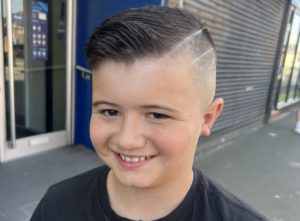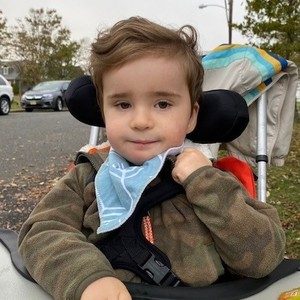Emmersyn
Share This Post
Emmersyn, aka Emma, is my little girl; she is my second daughter and the bond that brought our blended family together in the summer of 2014. There was an odd sense of calmness when preparing for her birth. In fact, I felt so much more equipped since I knew a little bit of what to expect, unlike my first birthing experience eight years prior. Despite being five days past her due date, when she was ready, she was quick to enter the world. She was such a happy baby and I truly felt my heart exploding each moment caring for her; I felt blessed and only saw my dreams in front of me. It was all wonderful.
Similar to Emma’s late grand debut, she appeared to be taking her sweet time meeting milestones her first 18 months of life. Emma had a pretty decent sized head, and it seemed to be the explanation of why it was tricky for her to sit up “on time“ and then crawl. Nobody seemed concerned, because she simply looked like a chubby, adorable, baby that would get there in her own time. Then, months passed, and she wasn’t making much progress, and the journey of early intervention began…that was one day before she had two seizures on a Saturday without much of an explanation. The doctors eventually deemed it to be from dehydration post a stomach bug. Nothing else explained it and it didn’t really feel right, but truly, it was a relief that nothing else was found, so we went with it.
Even though Emma was “late” on skills, she had this presence about her. She connected with people without words and some would say she looked through to your soul and appeared to read your deepest thoughts. She soothed so many as a baby and that only continued through her toddler years. She didn’t need out loud words; she had her her eyes to communicate and her facial expressions. Boy, did she have many faces to tell you how she felt about something or even you; she was sort of like a human detector or kindness.
Emma worked really hard to walk at around two years old and began babbling in that next year. It was clear that she wasn’t commensurate with her same aged peers, but she sure did work hard. Everything seemed to be a struggle. It felt so unfair that she needed to work so hard learning how to do everything- from stepping on and off a curb, navigating different playgrounds, learning to use utensils, climbing stairs, bouncing a ball, and anything else that you can think of that comes quite naturally to most young children. However, we plowed forward, and she broke down those barriers and conquered multiple achievements. She was closing the gap. Although her speech was slow to come, she got there. She was speaking and understood others so beautifully. Sure, along the way, she was diagnosed with various disorders, such as severe childhood apraxia, dyspraxia, expressive and receptive language disorder, autism, and probably others that didn’t make it onto the list. But, my daughter wasn’t defined by those things. We knew we would need to work harder, fight harder, and then play harder too. It is “funny” now to think about how I thought those days were so tough.
Fast forward to the beginning of the pandemic in 2020, just a little over two months into us “doing preschool” in our basement and really living up life as best we could, life changed overnight. Our spunky little five year old girl woke up one morning different. I had prayed for an overnight change that all of a sudden things would be easier for her; the opposite happened. Emma lost the ability to speak and function as she had been. So much of what she had worked so hard to learn was gone. At first, it looked like she wasn’t feeling well and was simply quiet. Talking was hard so that made sense. After two days of nonstop toileting accidents, minimal vocal sounds, and a different look in my child’s face, we fought to get her seen. Anyone else remember trying to get into a doctor during those times? It took a few weeks but eventually got to see some specialists that were wildly intrigued with what was going on. This was after multiple professionals that told us children with autism had responded in various ways with their routines being changed and many adults have reacted differently causing significant changes in their child’s behavior. Huh? What? Are you saying I’m making this up or I caused this? Are you saying I’m looking for attention?
Oh, there were many more things said.
We landed ourselves a five day stay at the hospital, where there were many guesses of what this could be. We saw specialist after specialist. Emma’s cuteness overload perplexed the doctors, especially when all of their guesses came back negative. She didn’t fit anything. They repeatedly looked at her facial features, examined her body, checked and rechecked her blood work, conducted an MRI, performed an EEG, and probably other things that I simply cannot remember. Their recommendation was to move forward with the highest level of genetic testing, but it took some time for insurance to approve this. Shocking, right?
After the DNA samples were lost in the mail two times, eventually, the third one made it to the lab; we received the results months later- eleven months after Emma lost so many of her skills, to be exact (April 2021). That is eleven months of having no idea what happened to our baby girl. Those days, weeks, and months were the same year that our country was facing the impact of the pandemic and figuring out how to educate our children smoothly. This was Emma‘s kindergarten year. How? Why? Help my child. Help us. It was an endless loop of questions and even after getting the diagnosis of her having a very rare genetic disorder called GRIA2, it didn’t help. You see, we were told there was no cure nor treatment. We were told that she looks healthy, and there shouldn’t be any more complications. It was kind of like we were starting over with teaching her all of the same skills and hoped that she could relearn them. We could work hard and do a lot of speech and language therapy, occupational therapy, and physical therapy. We were already doing those things. What more? There were no answers. We felt like we needed a medical degree to understand anything that we could find out there as well. The doctors told us that the condition is so rare, there wasn’t much information about it, but from what they saw, others didn’t appear to regress more. I suppose we took that as a positive back then.
So, we worked- hard- really, really hard to help Emma live a happy life and learn what she could learn at her own pace with a lot of help. School was/is really hard. Well, everything was/is really hard. She learned to use the toilet again and we were so proud to get there in the summer of 2022. She even started to say some sounds again, and we were moving in a nice direction.
Emma showed/shows so much love and awareness; even though her expressive abilities had not improved much, you saw her reception increasing. Can you imagine talking one day and not the next? Can you imagine what it feels like for your brain to not have the same connections to your mouth or body? I can’t, and my baby girl can’t tell me what she feels.
Moving forward now to January 2023 and life changed again. Once again, it wasn’t for the better. Emma went from sleeping 10 to 12 hours each night (which she needed) to half of that at best. It started off with her appearing to be silly and not sleeping. When you meet Emma and hear her giggle, it is almost impossible to not smile and laugh right by her side. When the giggles turned into staying awake for hours, naturally, she was agitated in the morning. When those giggles turned to agitation at night, the tides really turned. Emma went from a really happy child, despite the awful nature of this disease that stripped her away from so much for that long, to a child that began to hit herself in the face/head. At first, it looked like she was communicating, saying that she was tired and frustrated. It turned into her pounding on her face, head, and legs to screaming and then aggressing toward anyone attempting to console her. These same types of actions began to bleed into the morning at school. She somehow was able to regroup and have a beautiful afternoon and evening until the cycle started again later in the night when she couldn’t sleep. Then, the pattern changed again. Those behaviors happened at any period of the day, no matter where she was or who she was with, and every moment was unpredictable.
We landed in the hospital again early April (2023) and it really appeared to be a lack of sleep issue so that is what we tackled with medication for the first time (aside from melatonin). Things got way better for about six days. It all started again however, and even more severe for the next seven weeks. My beautiful little girl had bruises all around her face and body from the impact of her hitting herself. She was in pain and we didn’t know how to help her. So many interventions. No positive results that lasted. To watch your child go from happy and smiling to hitting herself in the blink of an eye feels like a nightmare. In our most happy places, with her most preferred activities, it didn’t matter.
As an educator for children with emotional/behavioral difficulties, and/or autism, I teach and train dozens of people every year how to handle behaviors. I couldn’t have been more confident that this was not simply a child engaging in behaviors. Yes, behavior is communication and she couldn’t have been screaming more loudly without words. She was/is telling us something and we couldn’t figure it out. In June 2023, my baby girl was out of my physical care for three weeks after needing to make the most difficult decision of my life to rely on others in an inpatient medical facility to get her to a better, safer spot. My heart was crushed. Every breath I took, I waited for the phone call to talk about discharge. Each visit with her brought me hope as I saw her healing. With the help of medication, my girl’s brain and body could finally feel some relief. I learned more in those weeks while she was away than ever before. I read anything I could find and watched videos nonstop to understand this disorder. I was welcomed into the CureGRIN community that I didn’t know existed and found people with similar significant struggles.
But, we need more. We need help for Emma, and so many other children that have been riddled with this and similar disorders in the GRI world. Along with this, I am confident that many have been undiagnosed, and families assume that their child has autism, an intellectual disability, epilepsy, and many other things that typically go along with these disorders, with then misguided treatment. There are doctors that can explain what is happening to our children and we can get there as a larger community with finding treatment and hopefully cures to stop our children’s pain and avoid others from ever needing to go through what they’ve gone through. What I’ve learned recently, now connected with others, is only the start of what I imagine will be a lifelong journey and fight to help this community.
Read more Posts

CureGRIN Stories
Finley
He’s a happy boy who is passionate about football and WWE, he has a wicked sense of humour and is so friendly and loving.
March 5, 2024

CureGRIN Stories
Ciaran
Ciaran was born on April 23, 2018. At around 10 weeks old, we noticed that Ciaran wasn’t meeting his milestones. Countless doctors’ appointments and early intervention visits followed for the next several months with no real answers.
February 26, 2021
